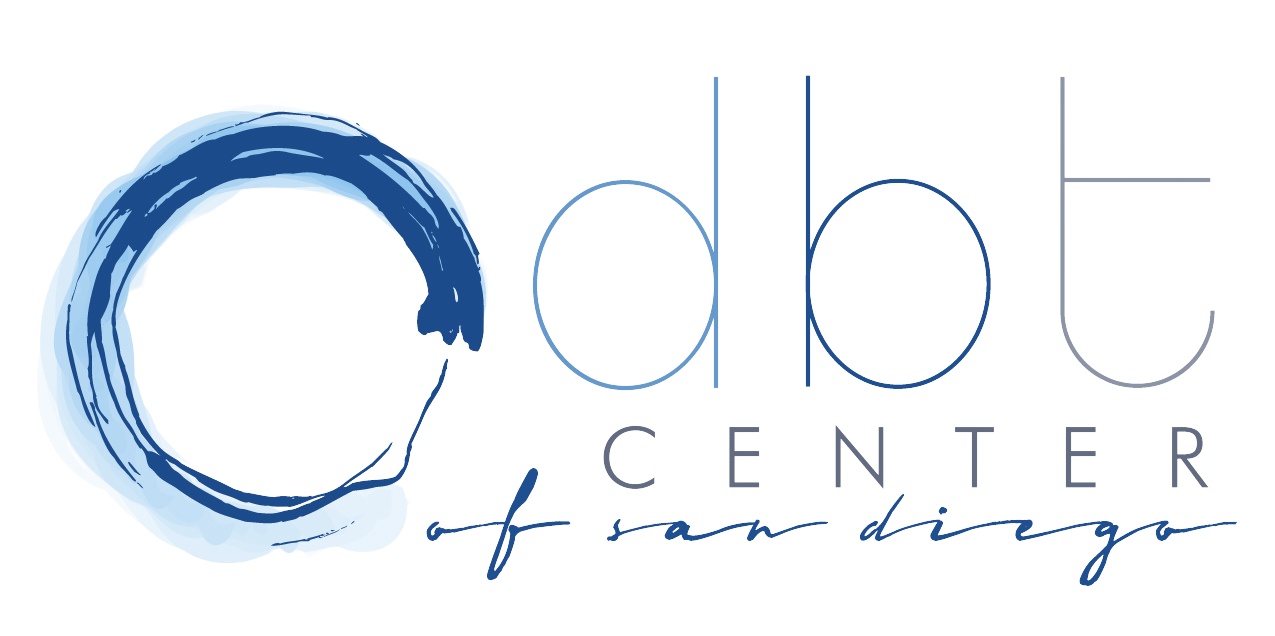Frequently Asked Questions
No. Standard DBT includes weekly DBT individual therapy, weekly skills training group, and telephone skills coaching. DBT was designed to be a comprehensive treatment to address the needs of clients with severe and complex emotion dysregulation problems, including self-injury and suicidality.
We are currently not on any insurance panels, and therefore do not usually bill health insurance companies. We generally require payment in advance or at time of service, and we can provide you a payment summary statement for you to submit to your insurance company. Many insurance companies will partially reimburse you for your DBT sessions. Check with your insurance company to verify how much they will reimburse you for your sessions at DBTCSD.
Occasionally, we are able to set up single-case agreements with the insurance company to pay the full cost of your sessions when we can make a convincing case for the medical necessity of DBT for the member and the lack of alternative accredited DBT programs in San Diego. Click here for more information.
No. We cannot prescribe medications because we are psychologists and masters level therapists. Although we have no psychiatrists on staff, we can provide you a list of psychiatrists who have worked effectively with our patients. We work very closely with psychiatrists to make sure that the therapy and the medications work together effectively to meet your needs.
Dr. Linehan developed DBT based on her failed attempts to treat patients with severe dysregulation, including chronic self-injury and suicidality. When she and her research team applied standard CBT, they encountered numerous problems with its use. Three were particularly troublesome:
- Clients receiving CBT found the unrelenting focus on change inherent to CBT to be invalidating. Clients responded by withdrawing from treatment, becoming angry, or vacillating between the two. This resulted in a high drop-out rate. If clients do not attend treatment, they cannot benefit from treatment.
- Clients unintentionally positively reinforced their therapists for ineffective treatment while punishing their therapists for effective therapy. For example, the research team noticed through its review of taped sessions that therapists would “back off” pushing for change of behavior when the client’s response was one of anger, emotional withdrawal, shame, or threats of self-harm. Similarly, clients would reward the therapist with interpersonal warmth or engagement if the therapist allowed them to change the topic of the session from one they did not want to discuss to one they did want to discuss.
- The sheer volume and severity of problems presented by clients made it impossible to use the standard CBT format. Individual therapists simply did not have time to both address the problems presented by clients (suicide attempts, self-harm, urges to quit treatment, noncompliance with homework assignments, untreated depression, anxiety disorders, and more) and have session time devoted to helping the client learn and apply the skills.
In response to these problems with standard CBT, Linehan made significant modifications to standard CBT, including adding acceptance and validation strategies to the change-based strategies of CBT, adding skills training as a separate component that occurs concurrent with individual therapy, and adding the DBT therapist consultation team.
We do not offer skills training groups to individuals who do not receive weekly individual therapy. Some individuals who receive regular non-DBT individual therapy want to add DBT skills training. We sometimes provide skills groups to adult clients and allow them to keep their current non-DBT therapist, but it depends on their current severity and complexity. We do not allow this arrangement for clients under 18.
Some patients prefer not to be on medications at all whereas others want to make sure that their medications will not change while they receive therapy at DBTCSD. The use of medications is a personal decision, depending on your priorities and preferences regarding the advantages and disadvantages. We will work closely with your psychiatrist to make sure that the therapy and the medications work together effectively to meet your needs. Sometimes medications interfere with the psychotherapies we provide and when we see such possibilities we will speak to you and your psychiatrist, and you will always maintain the right to choose the treatments you prefer. We do not require our patients take medications, but we are happy to provide referrals to psychiatrists if you want to consider the possibility that medications may enhance the effects of therapy.
Research has shown DBT to be effective in reducing suicidal behavior, non-suicidal self-injury, psychiatric hospitalization, treatment dropout, substance use, anger, and depression and improving functioning. For a review of the research on DBT, click here.
Further reading:
- Time Magazine article on DBT
- New York Times article on DBT with Marsha
- New York Times Article on Marsha Linehan’s own struggle


